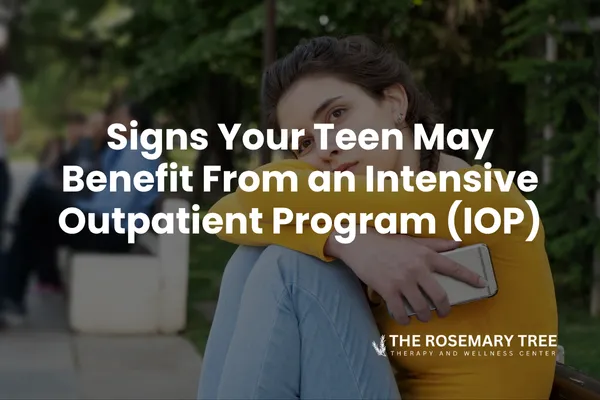
Signs Your Teen May Benefit From an Intensive Outpatient Program (IOP)
Introduction: Knowing When to Seek More Support
Adolescence is a time of rapid change, and many teens experience emotional ups and downs. But sometimes, typical challenges evolve into persistent struggles that need more structured care than weekly therapy can provide. An Intensive Outpatient Program (IOP) offers a middle ground between weekly counseling and inpatient care, delivering focused support while allowing teens to continue living at home. Here are some signs that your teen may benefit from an IOP.
Persistent Anxiety About School or Social Situations
If your teen regularly expresses anxiety about school—whether about grades, peer relationships, or extracurricular activities—it may indicate that they need more comprehensive support. Frequent worry can interfere with concentration, sleep, and academic performance. An IOP can help your teen build coping strategies, reduce anxiety, and restore confidence in social and academic settings.
Declining Academic Performance and Focus
A noticeable drop in grades or difficulty completing assignments can be a red flag. When mental health challenges make it hard to stay organized, concentrate, or keep up with schoolwork, an IOP provides structured therapy and skills training that help teens develop effective study habits, regain focus, and rebuild motivation.
Withdrawal From Friends and Activities
Teens who once enjoyed sports, hobbies, or social gatherings may suddenly lose interest. If your teen isolates themselves, avoids friends, or stops participating in activities they used to love, it might signal underlying depression or anxiety. IOPs offer group therapy and peer support, helping teens reconnect, feel understood, and rebuild a sense of belonging.
Feelings of Hopelessness or Persistent Sadness
Everyone experiences sadness now and then, but ongoing hopelessness or despair warrants attention. If your teen talks about feeling empty, worthless, or sees no point in their future, they may be struggling with depression. An IOP provides intensive counseling and teaches strategies to shift negative thinking patterns, cultivate self-worth, and foster resilience.
Lack of Motivation, Apathy, or Boredom
Chronic apathy, boredom, or lack of motivation can indicate that a teen is overwhelmed and disengaged. When life feels meaningless, it can be hard to set goals or follow through on responsibilities. An IOP helps teens identify personal goals, build healthy routines, and re-engage with activities that bring joy and purpose.
Risky Behaviors, Substance Use, or Self-Harm
If you notice signs of substance use, self-harm, or other dangerous behaviors, seek help immediately. These actions often signal deeper emotional pain that needs professional intervention. IOPs provide close monitoring, specialized therapy, and family involvement to address these behaviors and support healing.
Weekly Therapy Isn’t Enough
Sometimes, teens participate in regular therapy sessions but show little improvement or their symptoms intensify. If progress has stalled despite consistent counseling, a more intensive approach may be necessary. IOPs offer multiple hours of therapy each week, allowing clinicians to track progress closely and adjust treatment plans as needed.
Conclusion: Trust Your Instincts and Seek Support
As a parent, you know your child better than anyone. If you recognize any of these signs, consider consulting a mental health professional about whether an Intensive Outpatient Program could help. Structured, compassionate care can make a profound difference in your teen’s well-being and set them on a path toward lasting growth and healing.


